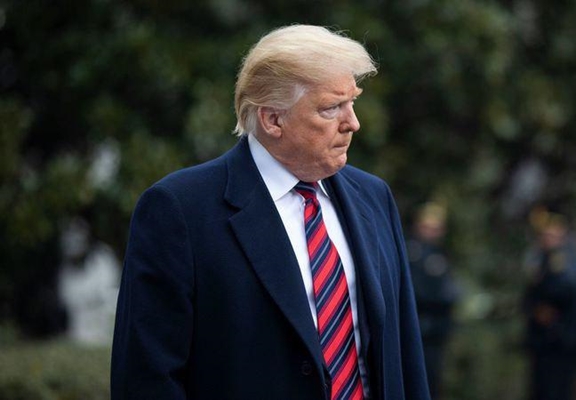Political analyst Gholamreza Nazar-Boland has, in an article published in the reformist daily Shargh, weighed in on recent tensions between Iran and the United States. The full text of the analytical piece follows.
Mr Trump claims to be caring so much about the lives of human beings, namely Iranians, that he calls off a key decision arguing it would endanger people’s lives, and accordingly, exposes himself to criticism both at home by his rivals, and abroad by his allies. If he cares so much about people’s lives, then why doesn’t he take into account the proportionality principle [which says the punishment should fit the crime] when it comes to its viral sanctions against Iran which have jeopardized the lives of many innocent children as well as the elderly, and why doesn’t he generalize that principle to this case, which happens to take civilian victims?
The downing of an ultra-modern U.S. drone by the aerospace units of Iran’s Islamic Revolution Guards Corps (IRGC) in the early hours of Thursday, June 20, 2019, overshadowed all news events across the world and triggered deep concern over Washington’s possible reaction to the attack. Accordingly, Iran and the US, as the two side of the argument, had a tough and busy day and kept the international community waiting for their stances and possible future actions. Finally, Trump posted a tweet late that night, writing, ““We were cocked & loaded to retaliate last night on 3 different sights when I asked, how many will die. 150 people, sir, was the answer from a General. 10 minutes before the strike I stopped it, not proportionate to shooting down an unmanned drone.”
This tweet somehow eased tensions and normalized the situation to some extent. We are not to verify the sincerity of Trump’s words. What we want to do now is to look into the reason why he decided to stop the military attack on Iran.
In the mentioned tweet, Trump subjects his decision to what is called “the proportionality principle” in law.
Two weeks ago, the United States’ envoy on Iran Brian Hook said Iran’s missile power is unreal and just a caricature of reality. When Hook made that claim, he must have thought that he was really telling the truth, and now his words are proven false, and he should go to US officials and object to them for having told him a lie. Or, he might have made that claim as a piece of a puzzle making up a war of nerves. If that is true, he should now go think of an alternative option that stays true for, at least, more than two weeks.
The downing of the U-S drone together with its consequences and aftershocks should be regarded as a watershed in the highly tense relations between Tehran and the White House, which can result in an opportunity to ease tensions in bilateral ties. This comes as we can, for example, complain that why Trump, who claims to care so much about people’s lives, is ignoring the proportionality principle by imposing sanctions on Iranians.
That reminds us of a statement by the 19th century British politician Benjamin Disraeli, who said, “Hold a stick in your hand and speak in a low voice!”
Our stick is our proven capability in defending the country’s frontiers, even if confronted by an aircraft which belongs to the number-one army in the world. This is the same capability that American officials had derided and termed it “fake!”
And our low voice is the same grievances that we express with a soft tone at the right time. We can optimistically regard as an “expedient move” Trump’s decision to cancel the strike due to what he called “dangerous for humans’ lives.” This way, we will present the Americans with “a way forward,” so that we would listen to the Americans if they have something to say and would make the necessary decisions accordingly. There is and English saying, “Grab the opportunities.”
So, if Trump does not pull the trigger of threat, we should pull the trigger of opportunity.
